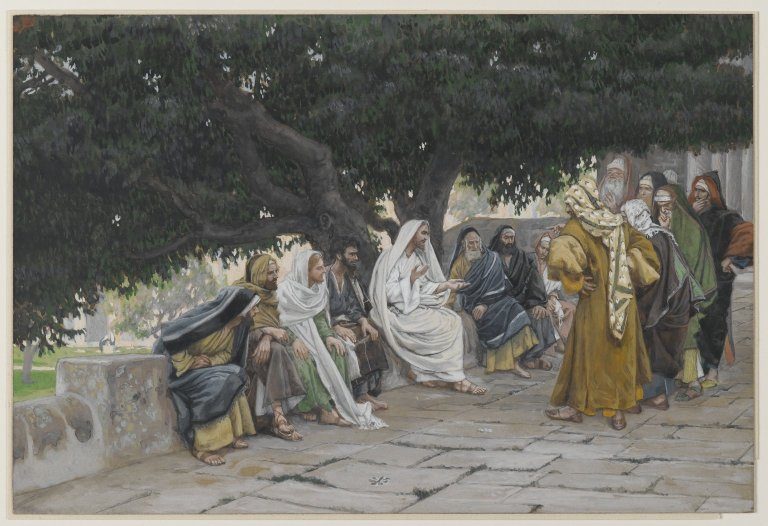
Skeptics often enjoy comparing the canonical Gospels in an attempt to make a lot of noise about what they perceived as errors, inaccuracies, and inconsistencies contained in them. And as we read their works it often causes us to wrestle with these differences, and more specifically the perceived differences between the Synoptic Gospels and the Gospel of John. Some suggest that the major differences that exist between John’s Gospel and the Synoptics are because the Synoptics focused more on the historical events of Jesus’ life, while John was more theologically minded. While this may be true to some degree, a closer look at all of the Gospels reveals that they all are concerned with both historical details and theological instruction with respect to Jesus’ life. For example, there are approximately 18 parables of Jesus that are unique to Luke’s Gospel, and since parables were a primary method of theological instruction for Jesus then one should concluded that theological content was a major emphasis of Luke. Similarly, the Gospel of Matthew contains 5 major discourses of Jesus, some material being unique to Matthew; consequently, no one can conclude that theological instruction was not also a significant focus for Matthew. Likewise, a major emphasis in Mark’s Gospel is Jesus’ authority over the demonic realm, so how can anyone report on this topic without emphasizing the reality of the God and the spiritual realm without focusing on “theological” content and issues? Conversely, the Gospel of John is systemic with unique historical details about Jesus’ life, his ministry, and his trial; so much so that to enumerate them all would take considerable time—so how could anyone suggest that historical accuracy was not one of his major concerns? John himself stated that “This is the disciple who is testifying to these things and wrote these things, and we know that his testimony is true. And there are also many other things which Jesus did, which if they were written in detail, I suppose that even the world itself would not contain the books that would be written” (Jn 21.24-25). Notice John’s emphasis, he claimed that truth about what Jesus “did” was an absolute component of his Gospel; thus his Gospel was not only concerned with what Jesus taught (theological truth) but with the things that Jesus actually accomplished (historical accuracy). He even admitted that it would not be possible to account for all the amazing historical events that occurred in the life of Jesus within a single volume. Consequently, one can no more argue that historical accuracy was not a major emphasis in John’s Gospel than they can argue that theology was not a major theme in the Synoptic Gospels.
An unintended consequence that some may come away because of these types of discussions are that the Gospel records are actually biased because of their “theological” content; consequently, they are not objective records of Jesus’ life. There is a significant problem with such a conclusion, which is this: Jesus is God incarnate; consequently, everything about his life and what he accomplished is by definition an event that is most essentially theological in nature. Theology means “the study of God.” The Greek word for God is “theo,” while in English the suffix “ology” has come to mean “the study of,” or “the science of.” The salient point is that one cannot appropriately understand the life of Jesus without necessarily engaging in a discussion of theology. In fact, to attempt to report on the life of Jesus of Nazareth while marginalizing or ignoring its theological import does not bring greater clarity about Jesus, instead it would only generate greater ignorance with respect to what is most significant about him, what he accomplished, and what he claimed concerning himself. Such an effort would necessarily withhold that which was most important concerning Jesus; thus shielding others from knowing that which is most essential about him.
A modern example of this type of inappropriate bias might help in illustrating this point. What would you think if in 500 years from now, while writing about the life of Barack Hussein Obama, that historians restricted themselves only to data that dealt with where he was born, that his political career began in Illinois, that he was the 44th president of the United States, and that he served 2 terms. However, while reporting on him they chose “for the sake of objectivity” to refrain from explaining anything about the significance of his ethnicity, his party affiliation, his approach to politics, his philosophy of governance, and his values and worldview. Would anyone consider such a record as providing a worthwhile report about President Obama? Of course not, so why should we accept the notion that an “objective” record concerning the life of Jesus of Nazareth must be absent of any theological discussion or content? Such an effort should be soundly rejected simply because no one can accurately report on the events surrounding the life of Jesus Christ while redacting from it its theological nature and significance. To put is simply, it is impossible to rationally and effectively discuss the incarnation of God and at the same time avoid engaging in theology. And attempting to do so does not make one more objective, rather it reveals their bias against the existence of divinity. Consequently, to report anything about Jesus without addressing or discussing the theological implications of his life would be an abortion of that which is most essential about him.
Monte Shanks Copyright © 2014